The 2020 National Education Policy (NEP) came 34 years after the previous policy was announced in 1986 and revised in 1992. It intends to have an education system by 2040 with equitable access to the highest quality education for all learners, regardless of social and economic background. Its chief objective is to better the education system bridging the gap between present learning outcomes and those desired.
To keep up with NEP 2020, The Humanity Welfare Council strives to educate every Indian to possess scientific temper & creative imagination, compassion & empathy, courage & resilience, and sound ethical values. Furthermore, in this rapidly changing world and knowledge landscape, HWC emphasises and aims at producing engaged, fruitful, and contributing citizens for building an equitable and inclusive society as envisioned by our constitution.

There are such policies :
The Indian Education System
The Indian Education system is one of the oldest and has been established as the most diverse learning system. India is committed to providing compulsory primary education to its citizens. At the time of independence, only 14% of India's population was literate. Now, after so many decades, the number of literates has increased by fivefold.
Even though the education system has improved in India, some rural areas do not have access to the education required in modern times. As we leapfrog into a new millennium, there is a need for the real emancipation of our people. Education systems across the country should impart the training required for children and working adults to read and write. Educational plans should include schooling for children and literacy training for adults as parallel elements at the national level.
The current education system is drastically affected due to Covid-19 as it has shifted from four-walled classrooms to online classes. Attention and interaction are objective to every individual and can't be attributed to any platforms or modes of learning during these times.
Efforts are put to give utmost importance to education in India with schemes like:
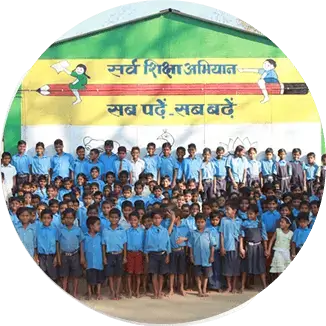
Sarva Shiksha Abhiyan
A program for children aged 6 to 14 years to provide children with Universal Elementary Education (UEE).

Midday Meal Scheme
Introduced in Government schools to encourage students to attend school and eliminate hunger.
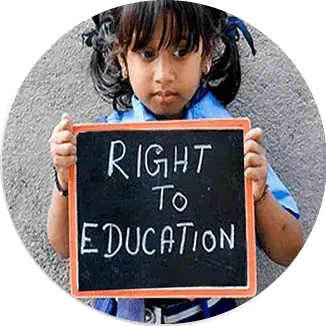
Right to Education
The Act implemented in 2009 makes education a fundamental right for every child between 6 to 14 years of age.
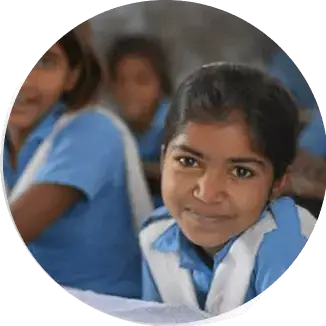
Beti Bachao, Beti Padhao Campaign
The scheme was launched in 2015 to promote education among young girls.
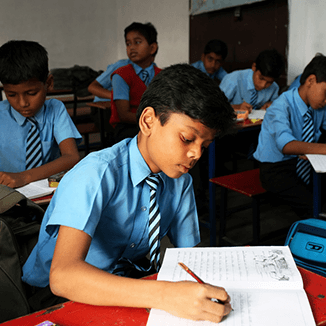
Scheme for Infrastructure Development in Minority Institutes (IDMI)
To improve the overall standard of education and infrastructure in unaided/aided minority schools.
What Do We Do?
The Humanity Welfare Council, in collaboration with the Litindia project, fulfils our goal of educational development. We have initiated an effort to boost education in rural India. It is crucial to raise awareness and enlighten people about literacy as dignity and human right.
India’s literacy rate is 77.7%. However, the literacy rate of Urban India is 87.7%, and in rural, it is only 73.5%. The problems faced by rural India in achieving education are:
- Less number of schools and resources.
- Less availability of teachers.
- Religious and societal standards.
- The considerable distance between the school and home.
- Absence of awareness of education.
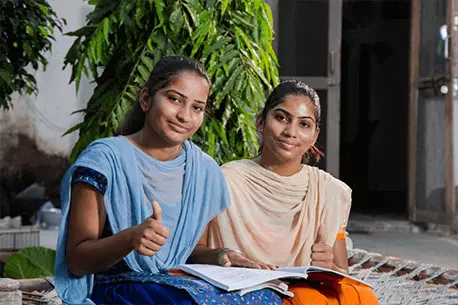
HWC is aiming to improve the present education scenario in rural India by:
- Creating awareness about the significance of education and rights.
- Upgrading free education in rural areas with a day and night open school system.
- Providing free books and other educational materials.
- Introducing and implementing innovative mentoring strategies, along with computer education in rural areas.
- Providing financial assistance in the form of scholarships, education loans to needy students.
- Providing practical training to children to establish their work in crucial times like tailoring, clay art, and other art forms.
- Using modern technologies in education.
- Establishing more schools with proper and adequate infrastructure in every village.
As the world has transformed into a tiny web of technology vanishing distances, HWC has also joined the league by initiating Project Greybook to provide basic amenities required for digital education for students in rural areas and underprivileged people. Digital literacy broadens the horizon of learning and moulds a child's life by strengthening motor skills, decision-making capabilities, cultural and social awareness and global interaction. The Humanity Welfare Council strives to bridge the gap between modern cities and villages in digital education.
Education plays a vital role in the development of an individual and making an individual a knowledgeable citizen. Education makes an individual self-reliant, helps suppress social evils, and contributes to society and the country's development. It enables us to understand and improve our community's work and create conditions for a better life. Every person has the right to education.
So let's join hands for this noble cause to educate the people of India!